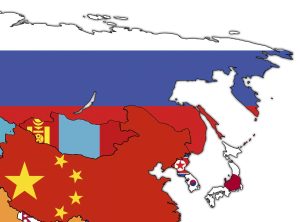The security of Northeast Asia is threatened by the equivocal actions of regional actors. Russia’s invasion of Ukraine – and resulting strained relations with G-7 countries, including Japan – and North Korea’s recent provocations, taken together, change the security environment of Northeast Asia at large. These precarious instabilities further limit what other countries, like Mongolia, can do to mitigate and defuse any escalation.
Any conversation concerning the security environment of Northeast Asia must involve Russia’s annexation of Ukrainian territories and North Korea’s recent artillery fire and missile tests. Although Moscow’s war does not directly involve the Northeast Asian countries, it has certainly disseminated political, economic, and security shock waves. Moreover, there is a possibility that the Kremlin’s action has emboldened Pyongyang’s determination to ramp up its testing.
The latest round of provocations from North Korea leaves Seoul and Tokyo with little hope, but severe suspicion and distrust. In South Korea, support is growing for Seoul to pursue its own nuclear weapons to better defense against aggression from the North.
At the same time, North Korea’s all-out efforts at boosting its military capabilities demonstrate Pyongyang’s continued insecurity. North Korea’s actions highlight decades of failed attempts at diplomacy, including a number of peace dialogues, and regional initiatives, such as the Six-Party Talks, the Ulaanbaatar Dialogue, and Seoul’s Sunshine Policy.
In the past, many levels of multilateral dialogues and bilateral attempts all have contributed to establishing platforms where Northeast Asian actors can discuss regional security issues in a round-table manner. In particular, Mongolia, being the only Northeast Asian country with stable relations with both North and South Korea, has served as a stable actor to meditate between conflicting parties. In retrospect, however, diplomacy, peace dialogues, and multi-party communications have not reached a comprehensive result, nor changed the behavior of Pyongyang. A change of course might be in the cards.
There is also an important geopolitical aspect to the security of Northeast Asia. Regional actors such as Russia, China, Japan, and the two Koreas play a major role in maintaining both regional and global peace and security. Russia and China, for example, are permanent members of the United Nations Security Council as well as are nuclear-weapon states. North Korea’s nuclear weapons capabilities at some point will force policymakers to consider not only if but when Pyongyang finally becomes a nuclear weapons state. The uniqueness of the Northeast Asian geopolitics mirrors its very challenges.
These intertwined dynamics help explain why the region does not have a unified security framework, like the North Atlantic Treaty Organization or most recently AUKUS.
Considering the complexity of Northeast Asian history, regional countries’ approach to maintaining security is dependent upon strong bilateral relations, diplomacy, and mutual understanding between governments and peoples. These mechanisms are the unwritten checks and balances that maintained the status quo of the region so far.
Amid looming security issues, however, some analysts view the current environment as a turning point in the already precarious status quo of Northeast Asia. In order to thwart or temper current instabilities, countries within the region may need to consider forming an official security framework. This security framework will not replace state’s obligations to the United Nations, International Atomic Energy Agency, or the Treaty on the Non-proliferation of Nuclear Weapons (NPT), but would rather strengthen communication and dialogue on certain security issues.
In an analytical piece published by The Carnegie Endowment for International Peace in May, Megan DuBois, Ankit Panda, and Toby Dalton proposed “a regional security architecture” in the form of “an arrangement of formal and informal mechanisms to regularize dialogue, affirm norms of behavior, mitigate sources of tension, and temper crises before they escalate into military conflict.”
However, the obstacle to establishing such a security framework at the moment is that there is no trust between Japan, North Korea, and South Korea, and little trust between Russia and China and U.S. allies Japan and South Korea. The groundwork – the mutual trust needed to establish a unified security framework – is not in place.
The threat North Korea poses to Japan and South Korea has only escalated since its first intercontinental ballistic missile test in 2017. The elephant in the room is for states to recognize that all past policies and dialogues have failed to alter Pyongyang’s motives.
The sea of uncertainties does not make Mongolia’s position any easier, even though it is the only Northeast Asian state to enjoy solid relationships with all the other regional parties. Despite Ulaanbaatar’s effort in initiating and enhancing regional security dialogues through diplomatic channels, Mongolia is cautious of any threat that could drag the country into regional conflict. Mongolia’s continued bilateral relationship with North Korea highlights that Pyongyang’s provocations are not directed toward Ulaanbaatar, yet in the end Mongolia is only as secure as its region.
In the short and medium term, Pyongyang’s provocations may result in an increase of defense expenditures in Northeast Asia. As individual states boost defense spending, the region will be tense and on high alert.
Moreover, the excessive use of provocative language on nuclear weapons in the media only exacerbates the existing paranoia in the region. These conversations do not help to maintain the peace and security of Northeast Asia, let alone the status quo.
The contentious environment in which Ulaanbaatar exists highlights the difficulties of non-nuclear weapons states (NNWS). Their status does not threaten others, but these states also do not have the power to stop other players from testing, or worse, using their nuclear capabilities.

































